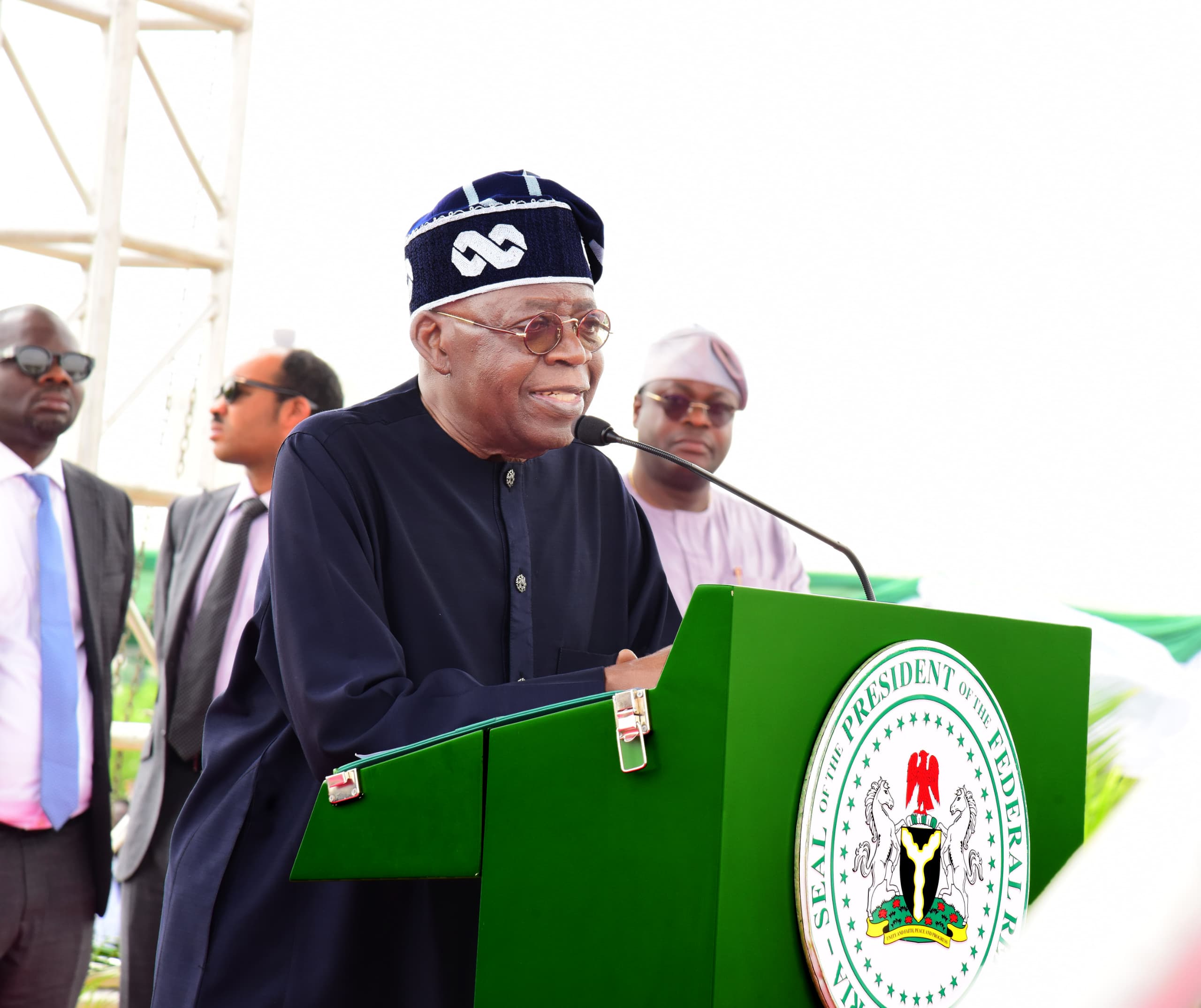Tinubu targets 135m MT of staple crops to stem food price hikes in Nigeria

By Our Reporter
President Bola Tinubu has said his administration targets increasing staple crops grown by small-holder farmers from 127 million MT in 2023 to 135 million MT this year.
The president also disclosed his government’s readiness to bolster food production by partnering larger-scale commercial farmers.
He said the government will support qualified farmers with satellite imagery for land use planning, crop rotation, and monitoring of agricultural expansion.
President Tinubu made this known on Thursday during inauguration of Presidential Economic Coordination Council (PECC) and the launch of the Economic Stabilization Programme to ensure food security.
Other focus of the government on Economic Stabilization include improved power supply, enhanced social welfare and healthcare, increased energy production, and overall economic transformation in the country.
Speaking at the inaugural meeting of the 31-member Council held at the Council Chambers in Abuja, President Tinubu, who chairs the Council, underscored the need for innovative solutions to the country’s economic challenges, noting the importance of public-private partnerships in driving economic reforms.
On the challenge of insufficient energy confronting the country, The President said: ”We have the challenge of energy security in Nigeria. We need to work together to improve our oil and gas sector, and we must also increase electricity generation and distribution throughout the country.
”We are determined to do that with your cooperation, collaboration, and recommendations. As a nation, it is so shameful that we are still generating 4.5GW of electricity.
”We must increase our oil production to two (2) million barrels per day within the next few months and we are determined to remove all entry barriers to investments in the energy sector while enhancing competitiveness.”
He announced measures, which will run concurrently with the National Construction and Household Support Programme, to stabilize the economy, enhance job creation, and foster economic security.
The measures under the Economic Stabilization Programme include energy security, increase on-grid electricity to be delivered to homes, increase oil production to 2 million barrels per day within the next 12 months and removal of barriers to entry for investments into the sector to enhance competitiveness.
In the health and social welfare sector, President Tinubu said that the federal government shall make essential medicines available at lower cost for 80-90 million Nigerians; expand healthcare insurance coverage for 1 million vulnerable people via a Vulnerable Group Fund in collaboration with state governments and redeploy 20,000 healthcare workers to provide services to 10-12 million patients in areas where they are most urgently needed.
In addition, the president said the federal government shall power up 4,800 primary healthcare centres (PHCs), second tier, and third tier hospitals using renewable energy sources.
On fiscal measures, the president the government will encourage the youth to owned enterprises across the country by creating 7,400 MSMEs within the next 6-12 months.
On MSME support he noted that A six hundred and fifty billion naira (N650 billion) facility will provide lower-cost short-term facilities to youth-owned businesses, manufacturers and MSMEs across various industries; food processing, pharmaceutical, agriculture, and wholesale and retail trade.
“This financing will be based on their current and future receivables, company rating, and market demand for products,” Tinubu highlighted.
The president assured Nigerians that a Manufacturing Stabilization Fund that will rejuvenate up to two hundred and fifty companies and deliver lower cost (9.0%-11.0%) long-term facilities to large, medium-scale, and light manufacturers that produce finished goods for domestic and export markets would be created.
In addition to that, a Sub-national Matching Fund to be known as “ A Grow Nigeria Development Fund” consisting of a single-digit interest rate loan portfolio with the Bank of Industry and a matching fund agreement with sub-national governments to grow MSMEs would be put in place.
He disclosed further that his administration will expand the Bank of Industry’s Rural Development Programme.
The president said a fund to support rural economies in developing 300 new MSMEs for each state, including the Federal Capital Territory (Abuja), resulting in 11,100 new rural-based MSMEs across the Federation will be put in place.
Tinubu also made mention creating a Mortgage Finance Acceleration Facility. This facility, according to Tinubu, aims at delivering affordable housing for all segments impacted by the cost-of-living challenge.
“This will support the construction of an additional 25,000 housing units,” the president declared.
These fiscal measures, according to the President, will improve access to finance for MSMEs and, in the process, create 4.7 million direct and indirect jobs over a six to 12-month period.
Emphasizing the significance of the task ahead, Vice-President Kashim Shettima, who is the Vice-Chairman of the Council, stated that President Tinubu is committed to proffering solutions to the nation’s economic challenges and not apportioning blame.
”I want to emphasize that when there is a will, there is always a way, and the President does not believe in apportioning blame. He believes in preparing solutions,” the Vice-President said.
